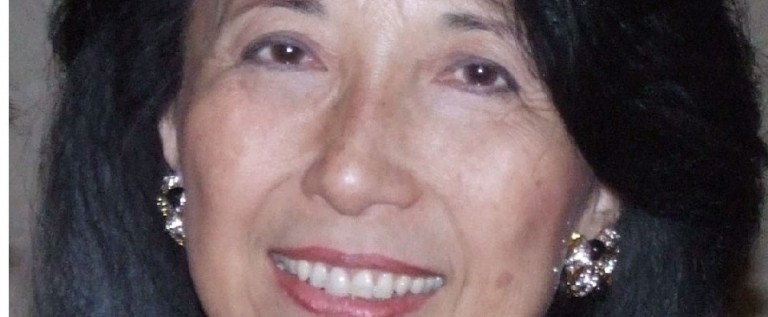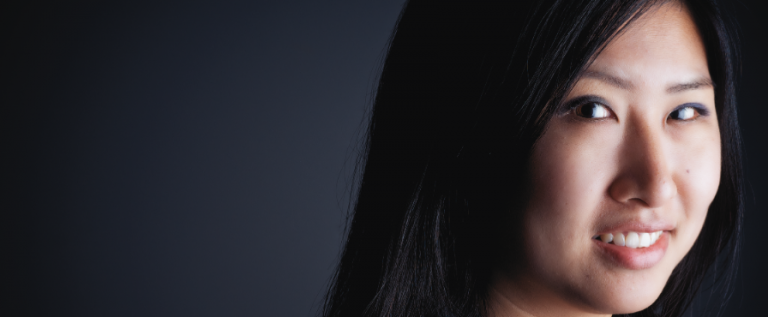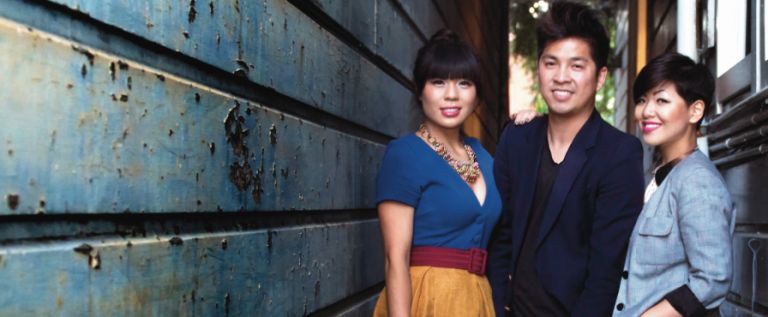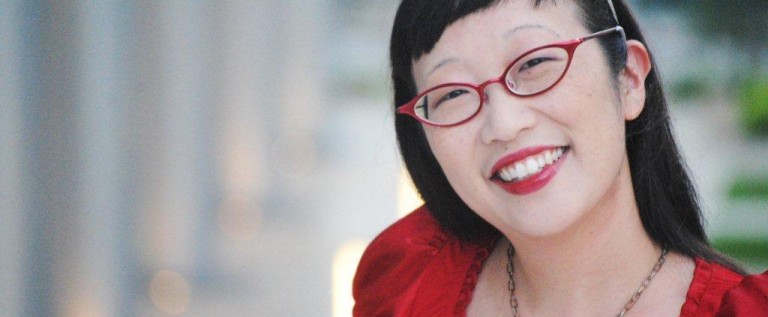A Conversation with Ginny Gong by Svetlana Kim

Ginny Gong is a successful businesswoman, an accomplished educator, a frequently requested national lecturer/commentator, an experienced human resource administrator, talk show host of ‘East Meets West’, personal coach/mentor, and a highly respected community leader
ALIST Magazine: You came to the United States with your parents when you were 6. What do you remember vividly about your childhood in America?
Ginny Gong: I came to the U.S. with my mother and brother. My father was already here and served in WWII. I remember my father bringing us to our first apartment in New York’s Times Square where the homeless were sleeping on the street in front of the apartment. My mother was determined we would not grow up under those circumstances and purchased a laundry business. We lived behind the laundry until I left for college.
My memories of my childhood were generally very positive, even though we grew up poor. Our housing accommodations were very limited and void of “extras” in our lives. I sewed all the clothes I wore to school by hand — and then by machine when we were able to purchase one.
I remember wanting to be like other students who lived in beautiful homes. But I was also proud of the fact that our home was where my friends chose to hang out. Perhaps it was because my mother was always so welcoming with food and drinks. To this day, more than 50 years later, my friends still recall the fun times spent chilling in the laundry.
AM: Your parent worked very hard. What did they instill in you?
GG: Watching my parents work every day of the year performing very physical tasks instilled in both my brother and me a deep commitment to doing a job and doing it well. We learned to be proud of whatever it is we are expected to do, that no task is menial. I learned that everyone has dirty laundry and we should be glad that our customers chose our business to bring their dirty laundry to.
The 24/7 work ethic is something I’ve emulated. As the Director of an agency, I have high expectations for staff and place great value on personal accountability and integrity.
AM: What was a turning point for you?
GG: Perhaps what was the greatest trigger for me was when my daughter went to kindergarten and came home excited that kids in school were using their fingers and demonstrating the “Asian eyes” gesture. She thought it was great, but I knew that was unacceptable and such behavior had to change. I guess I believed that kids had to have learned this from somewhere and I was determined to do something about such discriminatory attitudes.
I am a great advocate of empowering communities – and since the Asian American community lacks strong leadership, I’ve invested much of my energies to moving this community forward and enhancing the image of APAs in the media and in mainstream society. Starting a weekly TV show more than 15 years ago and publishing a book about growing up Asian American are two examples of this commitment.
AM: You have your own various accolades for your commitment to advocacy for Asian American women. Do you believe that the “bamboo ceiling” still exists today?
GG: Yes, I believe there is a bamboo ceiling and that it exists for women still. It depends on who the woman is and in what field she is working.
For me, being an Asian American woman has been nothing but an advantage. Professionally, I worked in the field of teaching — a field dominated by women. And having grown up in this country and understanding the culture and language, it was quite easy for me to meet and surpass expectations. Diversity was the buzz when I was looking for promotions, they were looking for people like me to promote. The rest is history.
For this reason, I spend time mentoring women and opening doors for qualified women. If women do not lend a helping hand to other women, who will? I also spend time addressing groups of young women whose careers are just taking off and sharing perspectives and lessons learned from someone who has been there, done that.
AM: How did you balance your motherhood, career, and community volunteer work?
GG: I believe that I apply both Eastern and Western values in how I live my life. When it came to following a husband who opted to change jobs numerous times and in so doing, moved the family 10 times, I did so — even when it meant giving up my own job each and every time. I attribute that to my Asian expectation of keeping family together and following my husband. When it came to my career, it always took a back seat. I am still somewhat puzzled as to why someone as westernized as I was readily made those decisions, but I did. There is no turning back; these were decisions made and they seemed to be the right ones at the time.
However, when it came to my role as a community volunteer, my Western sense of fairness and right and wrong was the motivator. In spite of my mother’s constant reminders about getting more sleep and not always giving away my time, I took advantage of opportunities to impact change in the community, which ultimately meant change for my family as well. For me, the goals were both personal and more than personal. I wanted my children and now, grandchildren, to live in a world that would be more welcoming.
AM: What was your biggest challenge and how did you overcome it?
GG: As a parent, when something does not go right for any one of your children — that is a challenge that trumps all challenges. My son was dealing with an addiction that was partially the result of the divorce between his father and me. The consequences of this problem were overwhelming. At the time, I was working full-time, serving as OCA’s National President, helping with the care of aging parents and being a new grandmother. I still look back and think about that period of my life and am not sure how I survived. But I did.
I rolled up my sleeves and did what needed to be done. I made many decisions along the way, including one that involved sending my son to a rehab center away from the area and committing to a program that was quite costly. My son and I survived this experience and we are both better off for having gone through it.
That was the past. My son is doing beautifully. He made a commitment to helping others and enrolled in a Masters Program for Mental Health Counseling — from which he will be graduating the end of this month. I am so proud of him and for what he has been able to overcome and accomplish. Now he is on the road to helping others. What more can a parent ask for? Life goes on and each day brings new challenges and new gifts.
AM: What is your definition of success?
GG: Success is measured in the amount of freedom we have to do what we really want to do. Professionally, as the Director of a government agency, I have reached a level of authority and influence. People in decision-making positions take my calls. Financially, I am at a point where I can do what I want to do, within limits. I do not live a luxurious life of extras but I have enough to afford me a comfortable life. Emotionally, I am surrounded by three wonderful children who are living their adult lives as they have chosen but know that I will always be there whenever they need me. And I am blessed with so many wonderful, loyal friends whose company I value. According to my definition, I am very successful.





